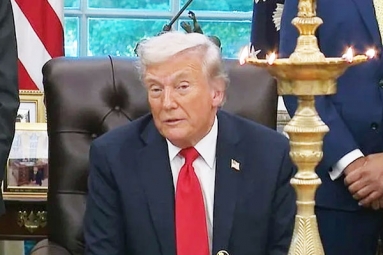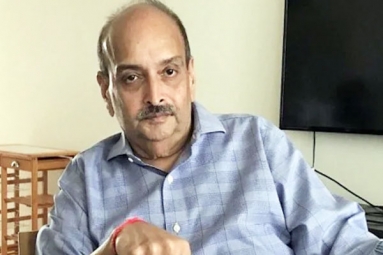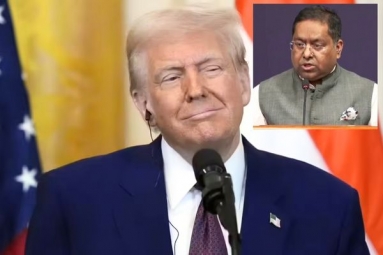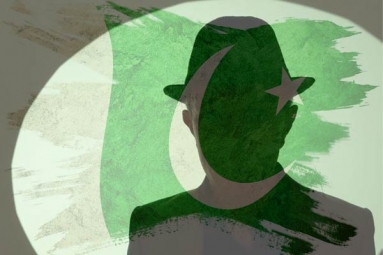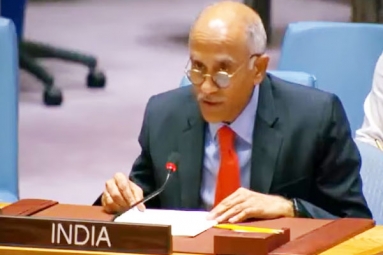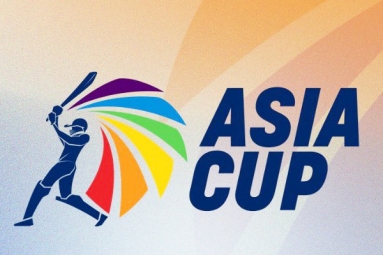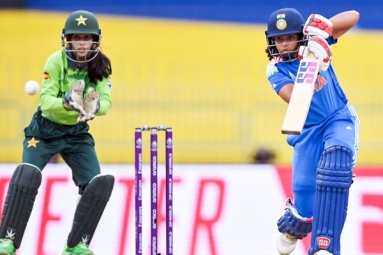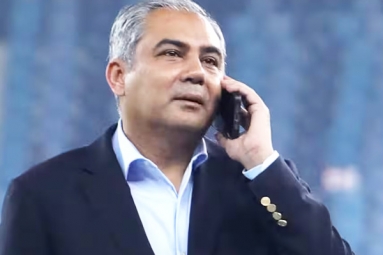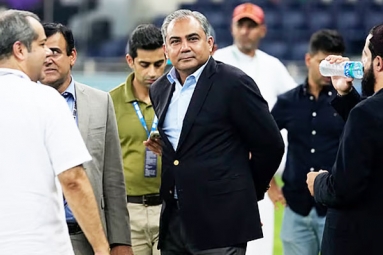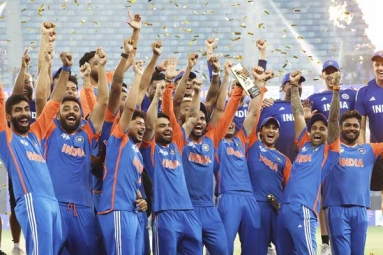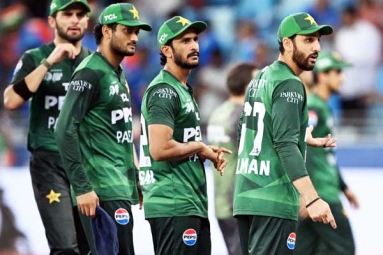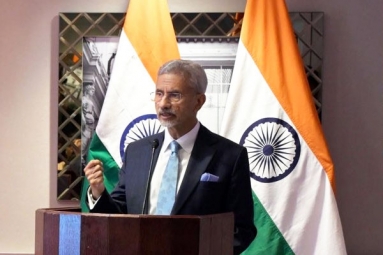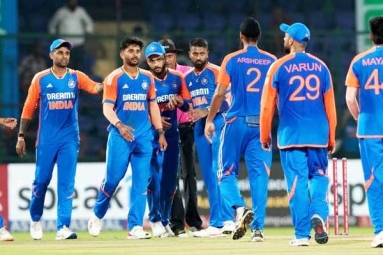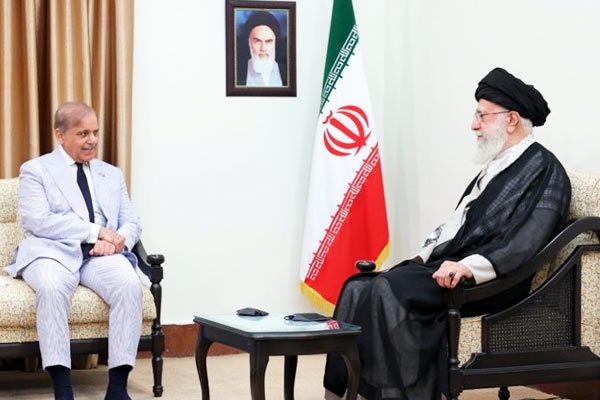
(Image source from: x.com/CMShehbaz)
One year following airstrikes exchanged between their territories, Iran and Pakistan seem to be mending their relationship as Pakistan's Prime Minister Shehbaz Sharif and Field Marshal Asim Munir traveled to Tehran to engage with Iranian officials. A significant factor fostering this rapprochement is the situation in Gaza, which has suffered greatly after Israel's harsh counterattacks in response to Hamas's offensive in October 2023. While Pakistan raised the concerns surrounding its recent confrontations with India over Kashmir, Iranian leader Ayatollah Seyyed Ali Khamenei has publicly expressed a desire for resolutions to disputes between India and Pakistan. During his discussions with Khamenei, Sharif mentioned the tensions with India stemming from airstrikes carried out by New Delhi in both Pakistan and Pakistan-Occupied Kashmir, which were retaliatory measures for the attack in Pahalgam that claimed 26 lives. The Prime Minister of Pakistan expressed gratitude for Iran's “constructive role” throughout the conflict.
At a joint press conference with Iranian President Masoud Pezeshkian, Sharif stated that Pakistan is open to dialogue with India to address “longstanding problems,” such as Kashmir, water-sharing agreements, and trade relationships. "We are willing to discuss water issues with our neighbor for the sake of peace. Our intention is to promote trade and enhance counter-terrorism efforts. We desire peace, and we are committed to achieving it through negotiations, resolving our differences,” he mentioned, according to a report by The Dawn. “If they agree to my proposal for peace, we will demonstrate our genuine commitment to it.”
Honoured to call on His Eminence Ayatollah Sayyed Ali Khamenei, Supreme Leader of Iran. I sought his views especially with regards to the current challenges faced by Muslim Ummah. We also exchanged views on bilateral and regional issues of mutual interests. I thanked him for… pic.twitter.com/smmUBJER89
— Shehbaz Sharif (@CMShehbaz) May 26, 2025
Iran's reaction was measured, with Khamenei expressing pleasure at the de-escalation of tensions between Pakistan and India and expressing hope for the resolution of their disputes. Student financing his comments on X, he stated, "We welcome the cessation of conflicts between Pakistan and India and look forward to the resolution of their differences." Iranian state media IRNA indicated that President Pezeshkian reiterated Iran's endorsement of a stable ceasefire between the two countries, advocating for dialogue to settle their issues and enhance peace.
We're pleased at the cessation of conflicts between Pakistan and India, and we hope the disputes between the two countries will be resolved.
— Khamenei.ir (@khamenei_ir) May 26, 2025
As reported by The Tehran Times, Khamenei acknowledged that Pakistan has resisted pressure to normalize relations with Israel, which he termed “a blatant betrayal of the Palestinian cause.” He noted during his meeting with the Pakistani Prime Minister that despite temptations for Islamic nations to engage with the Zionist regime in recent years, Pakistan has remained steadfast. He emphasized that the issue of Palestine holds utmost importance for the Islamic community. “The Gaza situation has escalated to a level that even ordinary citizens in Europe and the United States are protesting their governments, while regrettably, some Islamic nations align themselves with the Zionist regime amidst these circumstances,” he stated. Reported by The Dawn, Khamenei condemned Israeli actions for bringing immense hardship to Gaza's residents. "Now is the time for the international community to exert its influence towards establishing a sustainable ceasefire in Palestine. Pakistan stands united with its Iranian brethren to foster peace, progress, and prosperity," he concluded.
In the previous year, airstrikes were conducted by Iran in Balochistan, a province on the border with Pakistan, aimed at the Jaish al-Adl group, which has previously targeted Iranian border personnel. This group, which identifies as a Sunni Salafi organization, seeks autonomy for the Sistan and Baluchistan province in Iran. In response, Pakistan launched its own airstrikes against the Baloch Liberation Front in Iran. Against this backdrop, the recent visit of the Pakistani Prime Minister to Tehran signifies a warming of relations between the two nations. A report by the Defense Intelligence Agency of the United States has indicated that "Pakistan and Iran have undertaken initiatives, including high-ranking discussions, to reduce tensions after both nations executed separate airstrikes within each other's territory in January 2024 following cross-border terrorist incidents."
Khamenei expressed in a message on X that the ties between Iran and Pakistan have consistently been characterized as "warm and brotherly." He cited Pakistan's notable support during the conflict instigated by Saddam against Iran as a testament to these amicable relations. He further urged for the solidarity among Muslim nations, asserting, "In an era where global conflict-makers are incentivized to instigate wars, the only path to ensure the security of the Islamic Ummah is through the unity of Muslim nations."
Relations between Iran and Pakistan have always been warm and brotherly. Pakistan’s commendable stance during Saddam’s imposed war on Iran is a clear example of these brotherly relations.
— Khamenei.ir (@khamenei_ir) May 26, 2025
On May 9, amid ongoing tensions between India and Pakistan, Indian Foreign Affairs Minister S. Jaishankar co-chaired the 20th India-Iran Joint Commission Meeting with Iranian Foreign Affairs Minister Abbas Araghchi, where they reviewed bilateral relations. During their discussions, both leaders firmly denounced terrorism in all its forms and urged increased regional cooperation to counter the associated threats. Dr. Jaishankar also took the opportunity to update Minister Araghchi on Operation Sindoor.
Previously, following the Pahalgam terrorist attack, Iran had proposed to act as a mediator between India and Pakistan. "India and Pakistan are neighboring nations of Iran, sharing relationships deeply rooted in cultural and civilizational history. Like other neighboring countries, they are our top priority. Tehran is prepared to utilize its position to foster better understanding in Islamabad and New Delhi during this challenging period," he remarked. India, on its part, has consistently emphasized that the issues with Pakistan are bilateral. The Indian government has made it clear to the United States and other nations offering to mediate that the primary discussion revolves around the return of territories occupied by Pakistan and the extradition of terrorists.
In regard to the Gaza conflict, India has taken a neutral stance, which has served as a common ground for both Pakistan and Iran. In a written statement to the Rajya Sabha, Minister of State for External Affairs Kirti Vardhan Singh articulated that India "has always endorsed a negotiated two-State solution aimed at establishing a sovereign, independent, and viable Palestinian State within secure and recognized borders, coexisting peacefully with Israel." India strongly condemned the attacks in October 2023 in Israel, as well as the civilian casualties in the conflict between Israel and Hamas, urging for a ceasefire and ongoing humanitarian support for the people of Gaza.
Pakistan's engagement with Iran occurs within the context of Iran's ongoing conflict with the United States, particularly regarding discussions about Tehran's nuclear program. The United States serves as India's primary defense ally, prompting New Delhi to carefully evaluate the geopolitical implications before taking any action.



